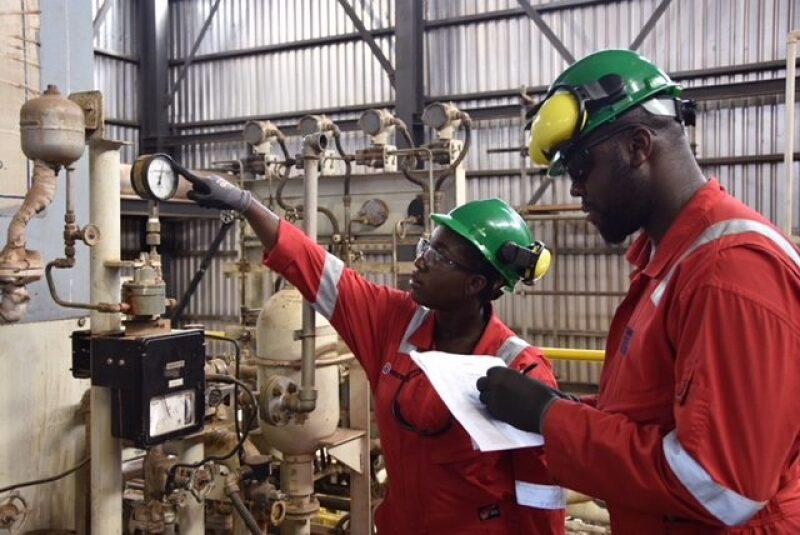Explore Our Bill Payment Services:

- Salary And Allowance
- Engineers Salary
- Ghana
Salary And Allowance Structure For Environmental Engineers In Ghana
Environmental engineering has become one of the most critical fields in modern society. Positioned at the intersection of science, technology, and public welfare, this discipline addresses issues that directly impact health, safety, and sustainable development. In Ghana, where rapid urbanization, industrial expansion, and environmental challenges are shaping national priorities, the role of environmental engineers is becoming more pronounced than ever before.
From water treatment projects and pollution control to sustainable waste management and renewable energy solutions, environmental engineers are tasked with providing technical expertise that ensures the responsible use of natural resources. Their work touches industries, government agencies, and communities across the country. As demand grows, so too does curiosity about how much these professionals earn, what allowances they receive, and how their compensation changes over time.
This article takes a deep dive into the salary and allowance structure of environmental engineers in Ghana, exploring earnings by experience, education, and career stage while also breaking down government and academic pay scales.
Salaries by Experience Level
Like most professions, the salary of an environmental engineer in Ghana is heavily influenced by experience. Fresh graduates earn modestly, but the pay scale steadily improves with years of practice, specialization, and leadership responsibilities. Below is an estimated breakdown:
-
0–2 years of experience: Around GHS 32,900 annually. Entry-level engineers often start here, especially those with only a bachelor’s degree. Their responsibilities typically involve assisting senior engineers, conducting field surveys, and supporting data collection.
-
2–5 years: Approximately GHS 40,640 annually. At this stage, engineers are entrusted with more independent projects and decision-making roles.
-
5–10 years: Roughly GHS 56,060 annually. Mid-level professionals at this point may lead small teams or act as consultants in environmental projects.
-
10–15 years: Salaries rise to about GHS 64,180 annually. These engineers often supervise junior staff, handle project design, and contribute to policy development.
-
15–20 years: Experienced professionals can earn around GHS 72,120 annually. Many work as department heads or senior managers.
-
20+ years: Those with long-standing careers and extensive expertise can take home GHS 77,380 annually or more, especially if they hold leadership positions in government or large corporations.
Interestingly, engineers working in Accra—the capital and economic hub—earn slightly different figures. Entry-level pay in Accra hovers around GHS 28,680 annually, and senior professionals may earn up to GHS 78,420 annually. The variation is influenced by cost of living, competition, and organizational budgets.
Overall, the pattern is clear: environmental engineers enjoy a steady rise in income as they gain experience, with earnings nearly doubling over the span of a career.
Educational Impact on Earnings
In Ghana, education is a powerful determinant of salary, especially in technical professions like environmental engineering. The higher the academic qualification, the greater the pay scale.
-
Bachelor’s Degree: Engineers with only a bachelor’s degree earn about GHS 43,220 annually. These professionals typically work in supportive roles or entry-level positions.
-
Master’s Degree: A master’s qualification elevates annual earnings to around GHS 65,760. This represents a 50–60% increase compared to bachelor’s degree holders. Many engineers with advanced degrees secure higher-ranking jobs, consultancy roles, or academic positions.
Pursuing postgraduate education is therefore not just a professional development choice but also a financial investment with significant long-term returns.
Government Earnings: Environmental Protection Agency (EPA) Ghana
One of the most prominent employers of environmental engineers in Ghana is the Environmental Protection Agency (EPA). The EPA offers structured salary grades, complemented by allowances that significantly improve overall earnings. Below is a breakdown of average monthly salaries and allowances at the agency:
| Grade | Monthly Salary (GHS) | Allowance Range (GHS) |
|---|---|---|
| Entry-Level / Junior Staff | 2,400 – 3,300 | 700 – 1,000 |
| Officers / Technical Roles | 4,000 – 6,000 | 1,000 – 1,500 |
| Senior / Supervisory Roles | 6,500 – 8,000 | 1,500 – 2,000 |
| Managerial / Heads | 8,500 – 12,000 | 2,000 – 3,000 |
| Directors / Executives | 12,500 – 14,000+ | 3,000 – 4,000 |
Allowances—such as housing, transport, risk pay, medical benefits, and field allowances—boost overall income by 25–40%. This makes public sector positions highly competitive and attractive, even compared to some private-sector jobs.
How Environmental Engineering Compares to Related Roles
Environmental engineers in Ghana earn salaries that position them between other professionals in the environmental sciences sector. For context:
-
Environmental Scientists: Typically earn more, with starting salaries around GHS 55,020 annually and experienced professionals making as much as GHS 148,300 annually. Their focus on research, data analysis, and specialized studies explains the higher pay scale.
-
Environment Advisors: These professionals earn between GHS 38,340 annually at entry-level and up to GHS 114,940 with decades of experience. Their advisory role—often to corporations and government agencies—makes them highly valuable but less technical than engineers.
Environmental engineers sit comfortably between these two groups, reflecting their dual role as both technical specialists and practical implementers of solutions.
University Professors in Environmental Engineering
An often-overlooked career path for environmental engineers is academia. Teaching and research roles in Ghanaian universities offer attractive remuneration, especially for senior lecturers and professors.
-
Average Salary: Around GHS 88,260 annually, which equates to about GHS 7,355 per month.
-
Range: Salaries stretch from GHS 45,260 annually for junior lecturers to GHS 130,400 annually for seasoned professors.
In addition to base pay, academic staff often receive research grants, consultancy opportunities, and allowances for conferences, making academia a lucrative and intellectually rewarding career path.
Career Progression Overview
To better understand the trajectory of environmental engineers in Ghana, here’s a simplified breakdown:
-
Entry-Level (0–2 years): Salaries range from GHS 30,000 to 40,000 annually. Monthly earnings often fall below GHS 4,000, especially for bachelor’s degree holders.
-
Mid-Level (2–10 years): Salaries rise to GHS 40,000–60,000 annually. This stage often includes project management roles, and postgraduate qualifications can accelerate progress.
-
Senior-Level (10+ years): Engineers at this stage earn between GHS 64,000–78,000 annually, particularly if they have advanced degrees or leadership responsibilities. Senior government roles, in particular, come with higher base pay and attractive allowances.
This progression highlights the long-term financial rewards for professionals who remain committed to the field.
Allowances and Benefits in Practice
Base salaries only tell part of the story. Allowances and benefits play a central role in total compensation for environmental engineers in Ghana. These can include:
-
Housing Allowance – to support accommodation costs, especially for those posted outside major cities.
-
Transport/Field Allowance – covering fuel, vehicle costs, or daily commuting.
-
Risk or Hardship Allowance – for engineers exposed to hazardous conditions during fieldwork.
-
Professional Allowance – offered to certified engineers and registered professionals.
-
Medical and Insurance Coverage – health benefits for employees and, in some cases, dependents.
-
Overtime and Leave Allowances – additional pay for extended work hours or unclaimed annual leave.
-
Retirement Plans and Pension Contributions – especially strong in public sector organizations like the EPA.
For high-ranking positions, monthly allowances can reach between GHS 700 and GHS 4,000, depending on grade and responsibilities.
Real-World Anecdote
It is worth noting that salary expectations often clash with realities in Ghana’s broader job market. Many young professionals comment that entry-level wages across industries are not always sufficient, with some companies offering as low as GHS 1,500 per month. Against this backdrop, environmental engineering stands out as a relatively well-compensated profession, particularly for those in government or multinational organizations.
Summary Table of Salaries
| Career Stage | Annual Salary (GHS) | Notes |
|---|---|---|
| Entry-Level | 32,000 – 43,000 | Bachelor’s degree, limited experience |
| Mid-Level | 40,000 – 56,000 | Growth with postgraduate qualifications |
| Senior-Level | 64,000 – 78,000 | Advanced roles, leadership, or specialization |
| Public Sector (EPA) | Variable; higher | Boosted by 25–40% allowances |
| Academic (Professor) | 45,000 – 130,000 | Depends on institution and tenure |
Actionable Advice for Aspiring Environmental Engineers
-
Invest in Education: A master’s degree can increase your salary by over 50%. Consider pursuing postgraduate studies early in your career.
-
Seek Roles with Allowances: Government and multinational employers offer attractive allowance packages that can significantly boost take-home pay.
-
Accumulate Experience: Earnings rise sharply after five years in the field. Focus on developing specialized skills in water resources, pollution control, or renewable energy.
-
Consider Academia: Teaching and research not only offer higher pay at senior levels but also provide stability and intellectual fulfillment.
-
Understand Net Pay: Always factor in deductions and allowances when evaluating job offers to get a clear picture of actual income.
Final Thoughts
Environmental engineering in Ghana offers a unique combination of professional fulfillment and financial reward. Salaries start at modest levels for new graduates but rise steadily with experience, education, and specialization. Public sector positions, particularly within the EPA, provide structured pay scales and generous allowances, while academia offers another lucrative pathway for those inclined toward teaching and research.
Beyond the financial aspect, environmental engineers play a pivotal role in Ghana’s sustainable development. They safeguard resources, protect communities, and help industries operate responsibly. For aspiring engineers, the profession promises not just competitive pay but also the chance to make a lasting impact on society and the environment.









